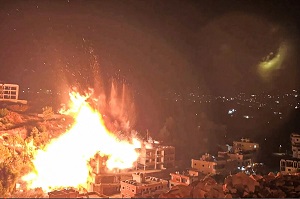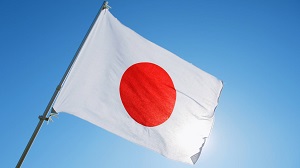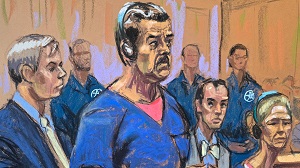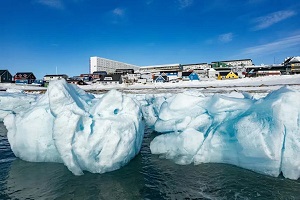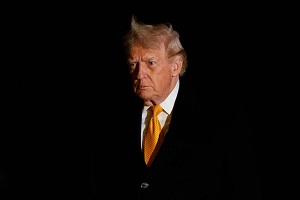Far right tipped to gain ground as jaded Bulgarians vote again
AFP
SOFIA — Bulgarians voted Sunday in their seventh election in less than four years, with little hope of an end to political turmoil that has favoured the country's far right.
The European Union's poorest member state has been at a standstill since 2020, when massive anti-corruption protests brought down the cabinet of conservative three-time Prime Minister Boyko Borisov.
Six consecutive votes since then have so far failed to yield a stable government.
Borisov's GERB party once again looks set to top Sunday's vote, currently polling at around 26 per cent.
"The people want a government, stability, and security," Borisov said as he voted, wearing jeans and a black jacket.
But chances are high that GERB will struggle to find partners to govern.
Voter turnout is also expected to be low, amid fears of electoral fraud.
During the last election in June, turnout hit its lowest since the end of communism at just 34 per cent.
Some 9.55 per cent of voters had voted by 11 am local time (0900 GMT) compared with 8.34 per cent at the same time in June's elections.
Voting began at 7 am and the first estimates will be released when polls close at 8 pm.
"I hope more people will come: the weather is nice and that makes me think something can change," 74-year-old pensioner Magdalina Yotova told AFP as she voted.
'Stuck in carousel'
According to a recent opinion poll, about 60 per cent of Bulgarians surveyed view the political deadlock as "extremely alarming".
On the streets of the capital Sofia, the rising voter apathy was palpable.
"We're fed up, that's for sure," said Aneliya Ivanova.
"We're tired of being stuck in a carousel that goes round and round, and every time it's the same result," the 33-year-old IT worker told AFP.
The political turmoil, which is unprecedented since 1989, has also favoured the ultra-nationalist Vazrazhdane party.
The pro-Russian party is currently polling at 13-14 per cent, rivalling the liberal reformist PP-DB coalition, which has lost ground with each new snap vote.
"Bulgaria must remain an independent country, without outside interference," the group's president Kostadin Kostadinov said, referring to Brussels and Washington.
Vazrazhdane appears to have gained voter support after proposing a law banning LGBTQ "propaganda" that was passed by a large majority in parliament in August.
The legislation was directly inspired by a similar law in Russia, and even though Bulgaria is a NATO member, many citizens remain strongly pro-Russian.
"Vazrazhdane's influence is growing to the point where the party is becoming a potential partner for GERB," Dobromir Zhivkov, director of the Market Links institute, told AFP.
Undecided White House race
GERB also supported the controversial anti-LGBTQ law, paving the way for a closer relationship with Vazrazhdane, while Borisov has insisted that his "partners in Brussels and Washington won't allow that".
During his time as prime minister, he carefully navigated the geopolitical fault lines, maintaining good relations with Moscow and Ankara, while respecting the positions of the EU and NATO.
Since Russia's invasion of Ukraine, Borisov has clearly sided with other Western countries in supporting Kyiv's fight against Moscow.
But a possible victory for Donald Trump in the November 5 US presidential election could change that, according to analyst Zhivkov.
The election of the Republican candidate and his "leniency towards corruption", Zhivkov said, could also prompt GERB to form a minority cabinet that relies on tacit backing from former tycoon Delyan Peevski, who remains the target of US and British sanctions.
The 44-year-old lawmaker has created a breakaway faction within the Turkish minority MRF party, which could win over seven per cent of the vote, or even more, with the opposition pointing to the risk of electoral fraud.
"Everyone hopes for a government this time to patch things up at least for a while," retiree Georgy Hristov told AFP.
"I will vote even if I no longer see the point," he said, warning that many, however, will probably "stay at home".
Prolonged political instability has put key anti-corruption reforms as well as the country's energy transition on hold, jeopardising the payout of European funds.
And Bulgaria's goals of joining the eurozone and the free movement Schengen area via land as well as air and sea have slipped further away.
Peevski's splitting of his MRF party, which enjoyed the support of the country's sizeable Muslim minority, could cost it its position as a key player in Bulgaria's post-communist history.
A further burden to the country is the cost of organising seven elections which amounts to almost 400 million euros ($433 million).
